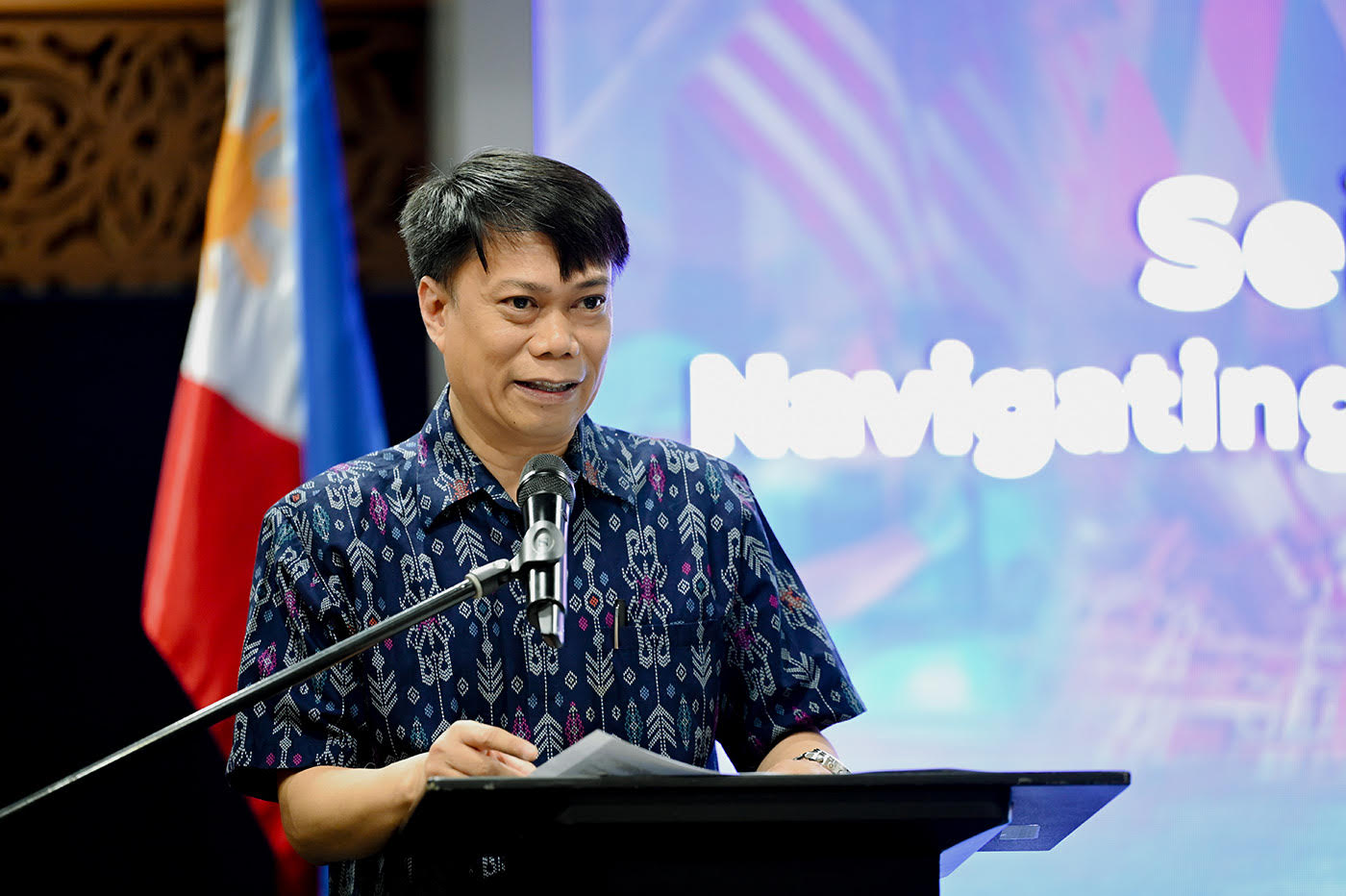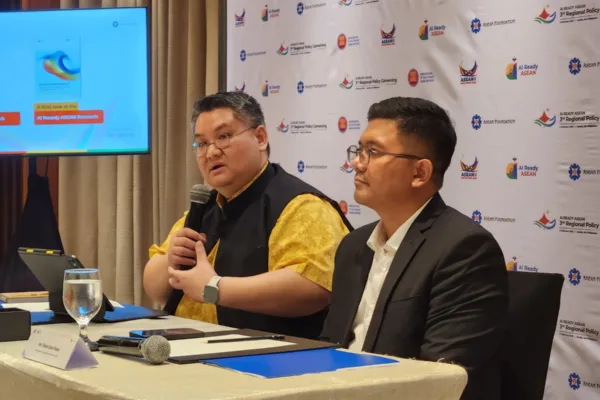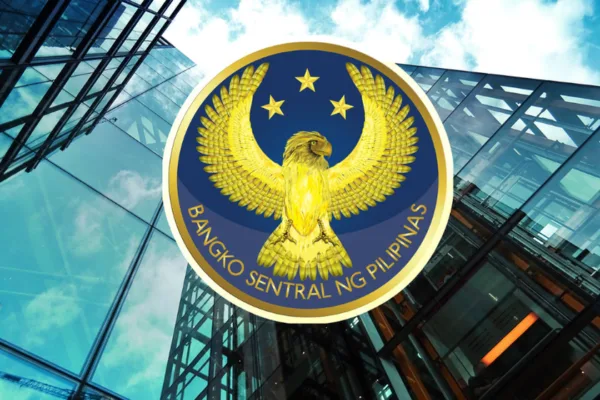In an increasingly volatile global economy, where trade shocks can ripple across continents, the Philippines stands as a beacon of resilience. The nation is strategically positioned not just to weather these storms, but to foster significant economic growth, a crucial advantage highlighted by Bangko Sentral ng Pilipinas (BSP) Deputy Governor for the Monetary and Economics Sector Zeno Ronald R. Abenoja.

BSP Deputy Governor Abenoja delivering a message of cautious optimism at the forum
Speaking on behalf of BSP Governor Eli M. Remolona, Jr. at a pivotal joint policy forum, Deputy Governor Abenoja delivered a message of cautious optimism.
The forum, a collaborative effort between the BSP and the Philippine Institute for Development Studies (PIDS), convened at the BSP Head Office in Manila on May 26, 2025. Its central theme, “Seizing the Shift: Navigating Trump’s Reciprocal Tariffs,” underscored the pressing need to dissect and respond to the evolving global trade landscape, particularly the unpredictable and often high tariffs imposed by the United States.
A key cornerstone of the Philippines’ strong economic footing, as emphasized by Deputy Governor Abenoja, is the nation’s remarkably low inflation rate. “Our current inflation rate of 1.4% (as of April 2025) gives us extra degrees of freedom to ease monetary policy and support growth,” Governor Remolona’s speech, delivered by Abenoja, stated. This low inflation provides the central bank with critical flexibility, allowing for potential interest rate adjustments that can stimulate economic activity and counteract external pressures.
Low inflation provides economic headroom amidst global trade realignment

Adding to this positive outlook, the BSP projects May 2025 inflation to settle within an even lower range of 0.9 to 1.7 percent. This downward trend is driven by several favorable factors. “Easing prices of rice and fish due to favorable domestic supply conditions in conjunction with lower oil prices, electricity rates, and the peso appreciation contributed to the downward price pressures for the month,” the BSP noted.
While these positive developments could be partially offset by higher prices of vegetables and meat items, the overall trajectory remains highly encouraging for economic stability.
Governor Remolona’s insights further underscored the gravity of global trade disruptions. “Trade shocks are more damaging than supply shocks. Left unchecked, they can erode decades of hard-won progress,” he conveyed. This recognition of the profound impact of trade imbalances set the stage for robust discussions among the forum’s diverse attendees, including key stakeholders from government, industry, and the academe.
The presence of Monetary Board Members Romeo L. Bernardo and Jose L. Querubin, along with BSP Assistant Governor Maria Margarita D. Gonzales, highlighted the high-level commitment to addressing these challenges head-on.
The discussions at the forum delved deep into several critical areas. Participants meticulously examined the restructuring of global trade patterns, a phenomenon driven by geopolitical shifts and the increasing emphasis on supply chain resilience.
A significant portion of the dialogue focused on identifying the Philippines’ comparative advantages – those unique strengths that can be leveraged to navigate and thrive in this new environment. Equally important was the identification of vulnerable and high-potential sectors, allowing for targeted policy interventions and investment strategies.
One of the most pressing outcomes of the forum was the collective exploration of strategic and coordinated policy responses. The goal was clear: to enhance the Philippines’ integration into global value chains, ensuring that the nation not only maintains its existing trade relationships but also actively seeks new opportunities for growth and collaboration.
This involves fostering a nimble and adaptable economy that can respond swiftly to external shifts while building on its intrinsic strengths.
BSP’s unified national approach fortifies economic stability

The consensus among experts is that while global trade challenges persist, the Philippines’ proactive stance, coupled with its favorable macroeconomic conditions and continuously improving inflation outlook, positions it uniquely.
The ability to manage inflation effectively provides the monetary tools necessary to support domestic growth, acting as a crucial buffer against external shocks.
“Going forward, the Monetary Board will continue to take a measured approach in adjusting the monetary policy stance in line with its price stability objectives conducive to balanced and sustainable growth of the economy and employment,” the BSP executive affirmed, reinforcing the central bank’s commitment to a stable economic environment.
Furthermore, the collaborative spirit demonstrated at the BSP-PIDS forum signifies a unified national approach to understanding, adapting to, and ultimately thriving within the complexities of the global economic landscape.
As the world grapples with shifting trade dynamics, the Philippines is not merely reacting; it is actively shaping its destiny, turning potential vulnerabilities into strategic advantages. The insights and strategies forged at this forum are vital steps towards securing a prosperous and resilient future for the nation amidst the ever-changing tides of international commerce.








